IoT
Latest

UK proposes tougher security for smart home devices
The UK government plans to introduce a new law designed to improve the security standards of household products connected to the Internet of Things (IoT). The legislation stipulates that all consumer smart devices sold in the UK -- such as smart cameras and TVs, wearable health trackers and connected appliances -- adhere to three specific requirements.

Hitting the Books: Hackers can convince your IoT devices to betray you
Welcome to Hitting the Books. With less than one in five Americans reading just for fun these days, we've done the hard work for you by scouring the internet for the most interesting, thought provoking books on science and technology we can find and delivering an easily digestible nugget of their stories.
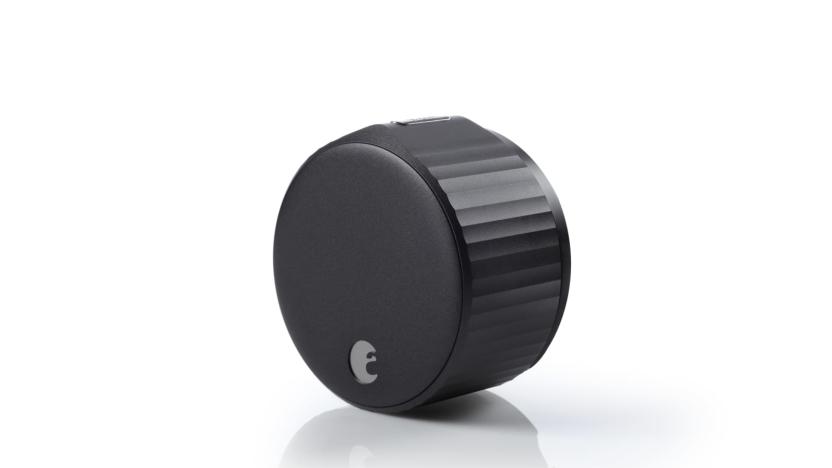
August's smaller smart lock doesn't need a Bluetooth bridge
August's Smart Lock Pro is one of the more highly praised smart locks. In a moment of doubt, users can double check that they've secured their doors via an app, rather than returning home. Plus, it's easier to unlock the door remotely than it is to share keys with friends, dog walkers and the like.

BlackBerry and Amazon team up to make connected cars more secure
The more connected cars get, the more we'll need to depend on high-quality security -- especially when dealing with the cloud. BlackBerry, which is more into cars than smartphones these days, is addressing that issue with a new connected vehicle software platform based on its QNX operating system. By tapping Internet of Things tech from Amazon Web Services, it'll let car manufactures build AI apps and access vehicle sensor data for connected, electric and autonomous cars.
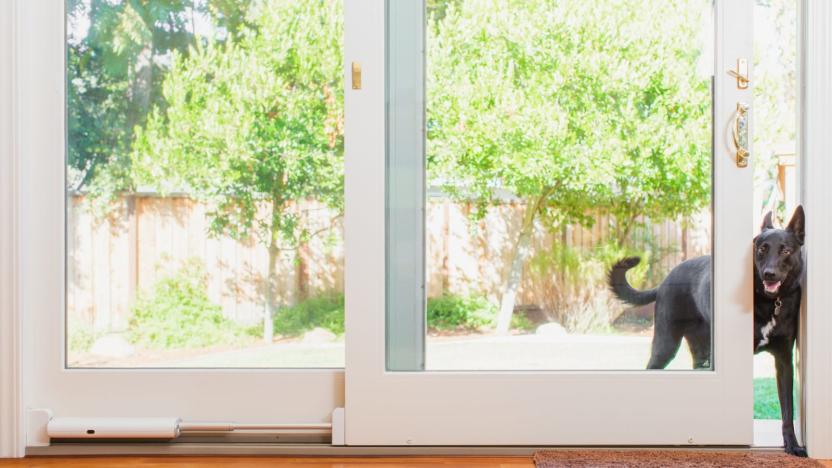
Wayzn turns your sliding door into a smart pet entrance
Pet owners who leave their animals at home for long stretches of the day often turn to dog sitters or doggie doors to let their pets in and out of the house. Wayzn thinks it has a better solution. The new Wayzn Smart Sliding Glass Door Opener is an app-powered device that lets you open and close a sliding door, remotely, whenever your pet needs. It will be on display at CES, and according to the company, it's already been named a CES 2020 Innovation Awards honoree.

How home assistants ruined us, an explanation
Our situation became clear when my friend ran through Trader Joe's screaming "ALEXA WHAT TIME IS IT?" This wasn't a cringey mockumentary comedy segment. It's the way we live now. I'm certain San Francisco's sea of terrified Postmates and Prime delivery runners parted for her, trampling an Instacart personal shopper already wallowing in the misfortune of crawling along the baked goods aisle, feeling blindly under tortillas for lost earbuds. Everyone wondering if they should yell at Google or Siri to call 911. Several cameras are trained on everyone, of course, to memorialize and broadcast these special moments forever.

Alexa is coming to low-spec devices like light switches and thermostats
Amazon's Alexa voice assistant has migrated to a lot of devices of late, including eyeglasses, ear buds and microwave ovens. Now, the company has revealed that it will run on devices with as little as 1MB of memory and a cheap Cortex-M processor. That means you can expect to see Alexa on all kinds of relatively dumb devices from lightbulbs to toys.

Stanford's new tech-laden hospital includes pill-picking robots
Technology only seems to find its way into hospitals in fits and starts. Stanford, however, is about to find out what happens when you build a tech-oriented hospital from the ground up. The university has opened a new hospital in Stanford Health Care's campus that aims to be as capable and connected as the phone in your pocket. You can control entertainment lighting and climate from a pad near your bed, while an updated MyHealth mobile app can help you contact a physician or guide you through the hospital's halls. However, the sheer automation of the hospital may be its real highlight.
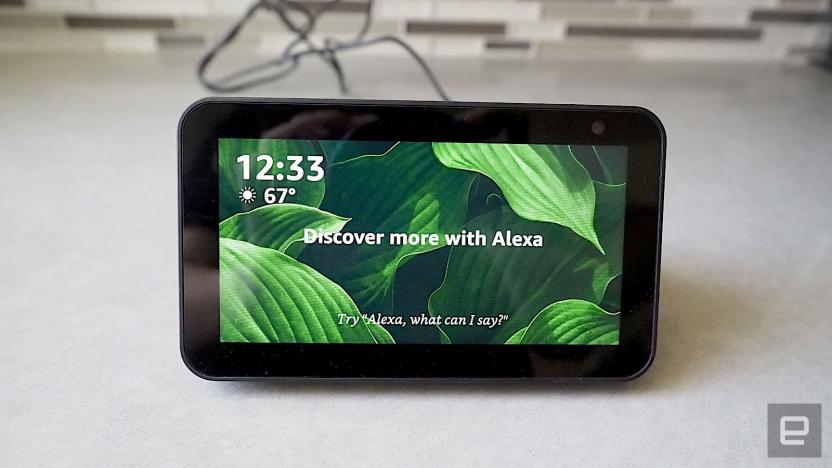
Amazon Echo Show falls victim to an old flaw at hacking contest
The latest iteration of the Pwn2Own hacking contest just underscored an all-too-common flaw with smart home devices. The security research team Fluoroacetate hacked into an Amazon Echo Show 5 by taking advantage of its "patch gap" -- that is, its use of older software that had been patched on other platforms. Brian Gorenc, the director of contest host Zero Day Initiative, explained to TechCrunch that the smart screen uses a not-so-current version of Google's Chromium browser engine that leaves it vulnerable to attacks. Fluoroacetate exploited this out-of-date code by using an integer overflow JavaScript bug to hijack the device while it was connected to a malicious WiFi network.

BYU researchers extend WiFi range by 200 feet with a software upgrade
As we fill our homes with connected devices, we'll need WiFi to reach around every corner. One solution is hardware like Amazon's Eero routers and Google's Nest WiFi, physical devices that give your primary WiFi signal a boost. But researchers think there might be another way: a software protocol that extends the distance connected devices can send and receive WiFi by more than 60 meters.
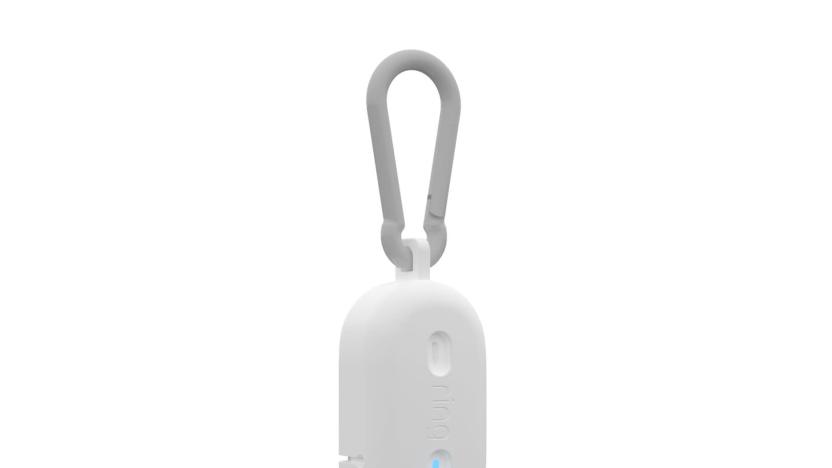
Amazon Sidewalk aims to connect outdoor tech beyond your WiFi range
As IoT technology spreads across our homes, keeping devices on our WiFi networks becomes more of an issue. Amazon thinks it has a solution with Sidewalk, which aims to keep low-power, low-bandwidth devices connected despite being far away from your router using, a 900 MHz spectrum.
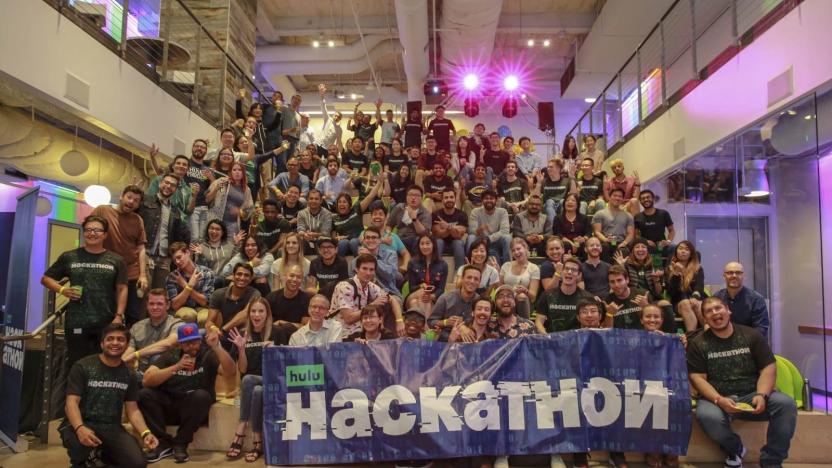
Hulu hackathon leads to eye-tracking controls for Roku
Of the 40 project ideas that came out of Hulu's annual hackathon this summer, more than a quarter addressed the needs of users with disabilities. Today, Hulu shared some of those accessibility-focused concepts.
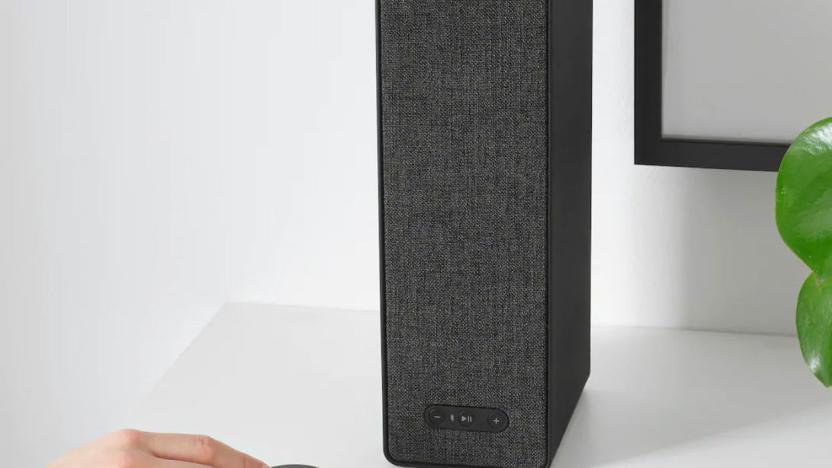
IKEA's remote for its Sonos-powered speakers ships October 1st
When IKEA launched a line of Sonos-powered SYMFONISK speakers last month, the Swedish furniture giant promised an accompanying remote. Spotted by Tweakers, the product page for the puck-shaped controller is now live. The SYMFONISK remote will launch at €14.99 in black and white color options. It will hit the UK and Europe on October 1st, with a North American release likely to follow shortly after.
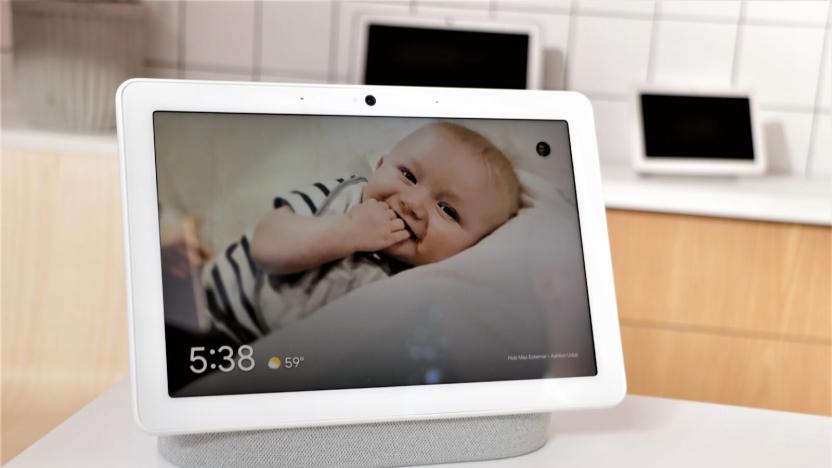
Smart homes are a broken mess and Nest wants to fix it
Rishi Chandra has a vision for what a smart home should look like in five years. As the lead for Google Nest products, it's his job to think ahead. He doesn't have all the answers, he admits, but he has an idea of what he'd like to see. Given his role at one of the most influential companies in the world, his ideas about how to push the smart home forward could affect the rest of the industry. Based on what Chandra shared with me at a recent interview in New York, the future of the smart home involves a lot of playing nice, even with would-be rivals.

TP-Link won't be supporting HomeKit in its Smart Plug Mini after all
TP-Link will not be updating their popular Kasa Smart Plug Mini to support Apple's HomeKit, according to the product's FAQ page. The networking brand had previously announced support for Apple's smart home framework at CES back in January, with plans to update the product's firmware at a later date.

Huawei reveals HarmonyOS, its alternative to Android
Huawei's long-rumored Android alternative, Hongmeng, is finally official. At today's Huawei Developer Conference, the company's Consumer Business Group CEO Richard Yu surprised the audience by unveiling "HarmonyOS," which he says is faster and safer than Android. That said, the software is primarily aimed at IoT products (such as smart displays, wearables, smart speakers and in-car devices) instead of smartphones. Yu says that when Huawei can no longer access Google's Android ecosystem, the company can deploy HarmonyOS "at any time." Until then, Huawei will continue to support Android.

The FIDO Alliance wants to bring password-less security to IoT devices
The FIDO Alliance's mission is to reduce our reliance on passwords, so it doesn't come as a surprise that it's working to remove password use from internet of things devices. In fact, it's hoping to strengthen IoT security altogether and has formed two groups to establish industry standards for IoT devices before they become much, much more commonplace. At the moment, a lot of smart products come with default passwords and have poor security in place, which could make them vulnerable to cyberattacks. We doubt anybody would want to worry about their toaster or their fridge getting hacked all the time.

Sony built an IoT chip with a 60 mile range
Sony is quietly launching a chip that could change how e-bikes, cars, street lamps and all kinds of other connected devices can relay information. The module, when installed on any IoT object, will allow it send data to Sony's proprietary low-power wide area (LPWA) ELTRES network launching this fall. It can transmit up to about 60 miles and work in noisy urban environments on objects moving at high speeds, opening up a lot of new applications in security, monitoring, tracking and more.

Control4's new hub connects 13,500 smart home devices on one screen
Smart home connected devices can control everything from lighting and temperature to security systems and music. But with products from so many different companies, they don't always work together. Control4 wants to change that. Yesterday, it debuted its Smart Home OS 3.

UK mulls security warnings for smart home devices
In an attempt to secure the millions of connected devices that find their way into homes in the UK, the government is considering baseline security requirements for Internet of Things products. The new rules could include mandatory labels that tell customers how secure a device is, and retailers could be prohibited from selling anything without an IoT security label. The UK has only just begun the consultation process, though, so these rules won't be written into law just yet.









